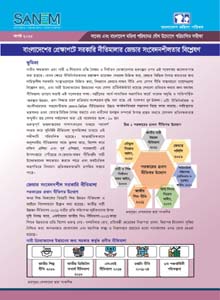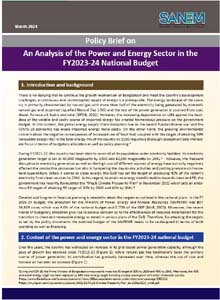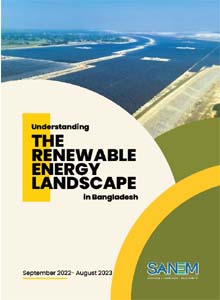
SANEM-BMP policy brief on Analysis of gender sensitivity of government policies Bangladesh perspective
 Women in Bangladesh frequently struggle for their rights to be upheld in their homes, communities, and governments. In society and the implementation of the law, women continue to face unfairness, marginalization, and prejudice, and they have little say in how decisions are made. Laws and practices that discriminate against women impede formal equality, and sociopolitical conditions prevent women from exercising their rights. In a similar vein, women’s empowerment is essential for the development of a country as well as the survival of society and the family.
Women in Bangladesh frequently struggle for their rights to be upheld in their homes, communities, and governments. In society and the implementation of the law, women continue to face unfairness, marginalization, and prejudice, and they have little say in how decisions are made. Laws and practices that discriminate against women impede formal equality, and sociopolitical conditions prevent women from exercising their rights. In a similar vein, women’s empowerment is essential for the development of a country as well as the survival of society and the family.
Women face severe difficulties and wage disparity is one of the most significant among them. Some other significant issues, including the prevalence of child marriage and the resulting rise in the number of women who are victims of domestic violence, and the widespread existence of a patriarchal perspective that prevents women’s empowerment provisions from being put into practice, have been identified. Environmental disasters and climate-related migration often burden women, limiting their access to financial resources. To improve women’s status in society, the government and NGOs should reduce dropout rates and promote women as role models. Prioritizing youth development, providing financial assistance, and simplifying banking procedures are essential for women’s development. Government agencies, NGOs, lawmakers, policymakers, and private stakeholders should collaborate to create effective policies and projects that remove barriers and enable women to participate fully in various social, cultural, and political spheres.



